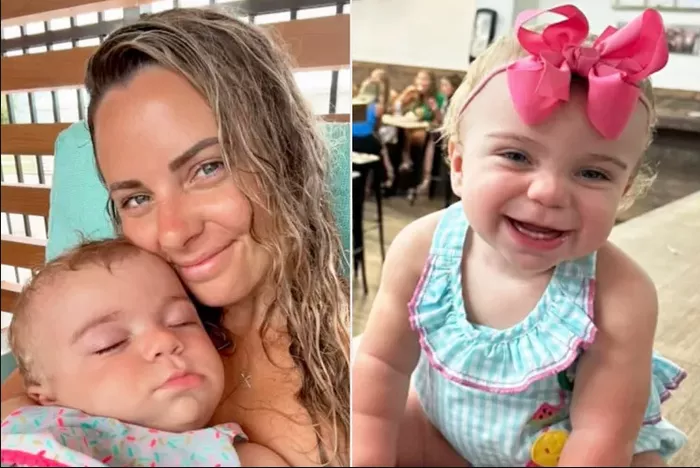A mother in Louisiana has discovered her daughter’s serious brain and nervous system disorder, thanks to a TikTok video. Now, she is using social media to help other parents recognize the signs.
Morgan Rachal noticed her 18-month-old daughter, Lydia, had several typical baby health issues, such as gastrointestinal problems and trouble sleeping. Lydia also had prominent eyebrows, which Rachal assumed she inherited from her father.
“Everyone always said, ‘She looks just like her daddy,'” Rachal shared in a TikTok video, showing photos of her daughter’s eyebrows.
In March, Rachal’s mother sent her a TikTok video of a girl diagnosed with Sanfilippo syndrome, a disorder that causes childhood dementia.
“I saw Lydia’s face in that child,” Rachal told PEOPLE. “I never thought anything was wrong before—she met all her milestones. She had ear infections, constipation, and sleep disturbances, which are common in babies.”
However, the video made Rachal reconsider. She took Lydia to the pediatrician a week later and showed him the TikTok, asking about genetic testing for Sanfilippo syndrome.
“He said he had never seen anyone with it or been asked about it,” Rachal explained. The doctor referred the family to another hospital for further testing.
After a series of tests and a nerve-wracking week, Lydia was diagnosed with Sanfilippo syndrome. The family was then referred to a genetics specialist in New Orleans. Fortunately, they caught the disorder early, and it hadn’t yet caused brain damage.
“They told us it hasn’t affected her brain yet,” Rachal said. “It usually starts affecting children around age 3 or 4, when they begin to regress.”
Lydia has Type B Sanfilippo, meaning she lacks an enzyme needed to break down certain sugars. There is no cure, and treatment options are limited. However, clinical trials for enzyme replacement and gene therapy offer some hope.
“These treatments could slow down the regression and prolong her life,” Rachal said.
Rachal is now active in fundraisers to support Lydia’s potential participation in clinical trials. She also raises awareness about Sanfilippo on social media.
“It’s so rare that many moms are first told their child has autism because the symptoms are similar,” Rachal said. “I hope our story brings awareness and leads to more research.”
She added, “I’m glad my mom didn’t wait to send me that video. If someone has concerns about your child, it’s because they care. Though it’s a scary journey, I’m grateful I could advocate for my daughter and get an early diagnosis.”


